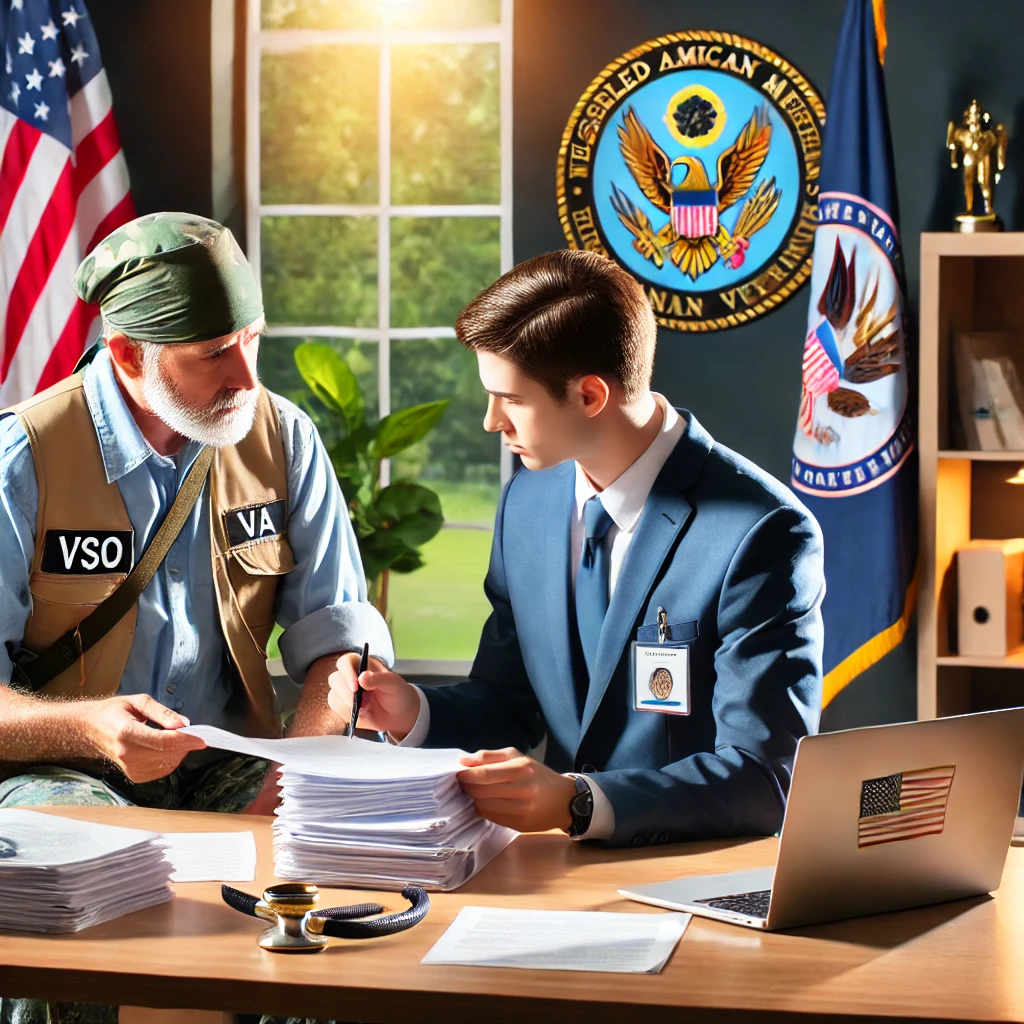
Why Seeking Assistance from Veterans Service Organizations (VSOs) Like Disabled American Veterans (DAV) Is More Sensible and Cost-Effective Than Hiring a Lawyer for VA Appeals
When appealing a VA decision, especially on conditions like vertigo as secondary to service-connected bilateral hearing loss and tinnitus, veterans often face a difficult choice: Should they hire a lawyer or seek the assistance of a Veterans Service Organization (VSO) like Disabled American Veterans (DAV)? The implications of this decision can significantly impact the outcome of a claim, as well as the financial burden on the veteran.
Here’s why obtaining help from a VSO is often the more practical and cost-effective choice.
1. Cost-Free Representation
One of the most compelling reasons to work with a VSO is that they provide their services free of charge. VSOs like DAV offer trained representatives who assist veterans through the claims and appeals process without imposing legal fees.
In contrast, VA-accredited attorneys charge fees that can be up to 20% of the retroactive benefits awarded. While these fees are regulated, they can still amount to a significant cost, especially in cases where veterans wait years for a favorable decision.
2. Expertise in Complex Claims
VSOs have representatives who are well-versed in the VA’s requirements and regulations, making them highly effective in assisting with complicated cases. Veterans attempting to prove a secondary service connection for conditions such as vertigo, which may stem from hearing loss or tinnitus, can benefit from the expertise of VSO representatives who have experience in similar cases.
For example, in VA Case 0211929, a veteran successfully appealed for service connection for vertigo as secondary to service-connected bilateral hearing loss and tinnitus. The veteran argued that their vertigo was linked to these conditions, and after providing medical evidence and testimony, the Board granted the appeal. Cases like this highlight the importance of presenting the right medical evidence, which VSOs are skilled in gathering and presenting.
3. Access to Resources and Medical Evidence
VSOs have access to critical resources that can make or break a VA claim. They often collaborate with medical experts, specialists, and psychologists to gather the evidence needed to support claims of secondary service connection. In cases like the one mentioned above, where proving that vertigo is caused or aggravated by hearing loss and tinnitus is crucial, VSOs can leverage these resources to provide comprehensive support.
Lawyers may not have the same direct access to these resources unless they hire external experts, which can further increase costs for the veteran.
4. Deep Understanding of the Appeals Process
VSOs work with the VA regularly and have a deep understanding of its appeals process. This expertise can prevent unnecessary delays and common errors that may weaken a veteran’s case. In cases like proving that vertigo is secondary to hearing loss and tinnitus, this familiarity with VA procedures can be invaluable.
In the aforementioned VA Case 0211929, the veteran successfully appealed because the VSO representatives knew how to navigate the VA’s complex system, ensuring that the correct medical evaluations and evidence were provided. These organizations understand how to align their arguments with VA requirements, increasing the likelihood of a favorable outcome.
5. Advocacy and Veteran-Centered Focus
VSOs are focused entirely on advocating for veterans. Organizations like DAV exist solely to serve veterans and are motivated by the goal of ensuring they receive the benefits they deserve. This can make a significant difference in the quality of representation veterans receive.
Unlike attorneys, who may be motivated by financial compensation, VSO representatives are committed to the well-being of veterans, often advocating for cases involving complex secondary conditions like vertigo without financial incentives.
6. Long-Term Support
In addition to providing free and specialized assistance during the appeals process, VSOs like DAV offer long-term support for veterans. They help with future claims, changes in disability ratings, and any other challenges a veteran may face in securing or maintaining benefits.
This is especially important for veterans dealing with chronic conditions, such as vertigo, tinnitus, and hearing loss. The ongoing support from a VSO can provide veterans with peace of mind, knowing that they have dedicated advocates throughout their VA journey.
Real-World Success: VA Case 0211929
A prime example of how VSOs can help veterans succeed in proving secondary service connection claims is VA Case 0211929. In this case, the veteran contended that their vertigo was related to their service-connected hearing loss and tinnitus. Initially, the claim was denied, but through the appeals process, with the assistance of their representative, the veteran was able to present compelling medical evidence, including an expert opinion, which established the link between these conditions.
The Board ultimately found that the vertigo was indeed secondary to the veteran’s bilateral hearing loss and tinnitus, granting the appeal. This case demonstrates how the expertise and advocacy of a VSO can lead to a successful outcome, particularly in cases involving complex medical conditions.
7. Proven Track Record
VSOs have a long history of helping veterans succeed in their appeals. Their proven track record of securing benefits for veterans, often through cases like VA Case 0211929, provides veterans with a sense of trust and confidence in their representation. For veterans with complex claims, such as proving a secondary service connection for vertigo, VSOs are equipped to handle these challenges effectively and efficiently.
Conclusion
For veterans appealing a VA decision, particularly in cases involving complex medical issues like proving that vertigo is secondary to bilateral hearing loss and tinnitus, seeking assistance from a Veterans Service Organization such as Disabled American Veterans is often the more practical and cost-effective option. With free representation, specialized expertise, access to valuable resources, and a strong commitment to veterans’ well-being, VSOs provide a comprehensive and highly effective alternative to hiring a lawyer.
Using DAV or other services VSOs can help a veterans obtain a case of highlight the critical role that VSOs play in helping veterans win their appeals and secure the benefits they deserve.
Take a look at the following from an actuak VA case:
CONCLUSION OF LAW
The criteria for service connection for a disorder manifested by vertigo, secondary to service-connected hearing loss and tinnitus disabilities, have been met.
Citation Nr: 1708783
Decision Date: 03/22/17 Archive Date: 04/03/17
https://www.va.gov/vetapp17/Files2/1708783.tx
Successful cases like VA Case 0211929 and others via this Google Search links:
https://www.google.com/search?q=tinnitus+cause+vertigo+VA+Case+approved&oq=tinnitus+cause+vertigo+VA+Case+approved&gs_lcrp=EgZjaHJvbWUyBggAEEUYOTIHCAEQIRigATIHCAIQIRigATIHCAMQIRigATIHCAQQIRigAdIBCTE4MDgyajBqN6gCALACAA&sourceid=chrome&ie=UTF-8

